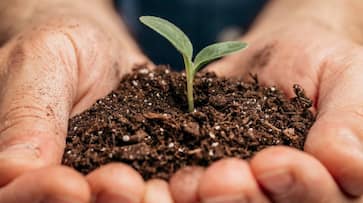Learn about the silent threat of soil erosion this World Soil Day. Discover its causes, the importance of healthy soil, and practical solutions to prevent further degradation.
Every year on December 5th, we celebrate World Soil Day, a day to think about the vital role soil plays in keeping our planet healthy. Soil is much more than just the dirt we walk on, it’s the foundation of all life on Earth. It helps plants grow, supports forests, and keeps our ecosystems balanced. But, here’s the problem: soil erosion, caused by human activities and climate change, is putting this precious resource at risk. So, this World Soil Day, let’s learn why soil matters and how we can stop erosion to protect our future!
What is Soil Erosion?
Soil erosion happens when the top layer of soil, which is rich in nutrients essential for plant growth, is carried away by wind, water, or human activity. It’s a slow process, but the effects can be disastrous, like lower crop yields, loss of wildlife, and more frequent flooding. Erosion is often caused by deforestation, bad farming practices, overgrazing by animals, and the spread of cities.
Why is healthy soil important?
Healthy soil is essential for our food supply, water filtration, carbon storage, and biodiversity. It helps regulate the climate and is crucial for growing the food we eat. If soil erosion isn't addressed, it could lead to the destruction of ecosystems, causing food shortages, water scarcity, and even turning some areas into deserts.
Ways to Stop Soil Erosion
1. Plant ground cover and vegetation
One of the easiest and most effective ways to prevent soil erosion is by keeping the ground covered. Planting grass, shrubs, or ground-cover plants helps hold the soil in place, stopping it from being washed or blown away. Trees and forests are also key players in reducing erosion, as their roots keep the soil together and protect it from heavy rainfall.
2. Mulching techniques
Mulching involves covering the soil with organic materials like straw, wood chips, or compost. It helps prevent soil erosion by shielding the surface from wind and water. Mulch also keeps the soil moist, reduces weed growth, and enriches the soil with nutrients as it breaks down.
3. Terracing and contour farming
In areas with steep slopes, terracing and contour farming can greatly reduce soil erosion. Terraces are step-like platforms built on hillsides to slow water flow, preventing it from washing away the soil. Contour farming involves planting crops along the natural contours of the land, which helps slow down water runoff and reduce erosion.
4. Reforestation and afforestation
Reforestation (replanting trees in areas where forests have been cut down) and afforestation (planting trees in previously barren land) are key strategies for fighting soil erosion. Trees offer shade, reduce wind speed, and stabilize the soil with their roots, which help keep it in place. These practices also boost biodiversity and play a vital role in absorbing carbon, making them essential for combating climate change.
5. Rain gardens
Rain gardens are shallow, landscaped depressions designed to capture rainwater runoff. By planting native plants in these gardens, the water can slowly soak into the soil, reducing erosion. Rain gardens help manage stormwater and protect the soil from being washed away by heavy rainfall.
How you can contribute
• Compost organic waste to enrich the soil in your garden and reduce waste.
• Plant trees in your backyard to promote soil health and reduce erosion.
• Support sustainable farming practices by purchasing from farmers who use methods like crop rotation, organic farming, and no-till farming.
• Reduce water wastage by implementing water-efficient gardening practices like rainwater harvesting.
• Raise awareness about the importance of soil conservation and encourage others to take action.
On World Soil Day, let’s appreciate the importance of healthy soil and pledge to protect this vital resource. By planting more trees, embracing sustainable farming methods, and reducing our environmental impact, we can tackle soil erosion and create a healthier, more sustainable future for everyone.
Last Updated Dec 5, 2024, 12:21 PM IST









![Salman Khan sets stage on fire for Anant Ambani, Radhika Merchant pre-wedding festivities [WATCH] ATG](https://static-gi.asianetnews.com/images/01hr1hh8y86gvb4kbqgnyhc0w0/whatsapp-image-2024-03-03-at-12-24-37-pm_100x60xt.jpg)
![Pregnant Deepika Padukone dances with Ranveer Singh at Anant Ambani, Radhika Merchant pre-wedding bash [WATCH] ATG](https://static-gi.asianetnews.com/images/01hr1ffyd3nzqzgm6ba0k87vr8/whatsapp-image-2024-03-03-at-11-45-35-am_100x60xt.jpg)


